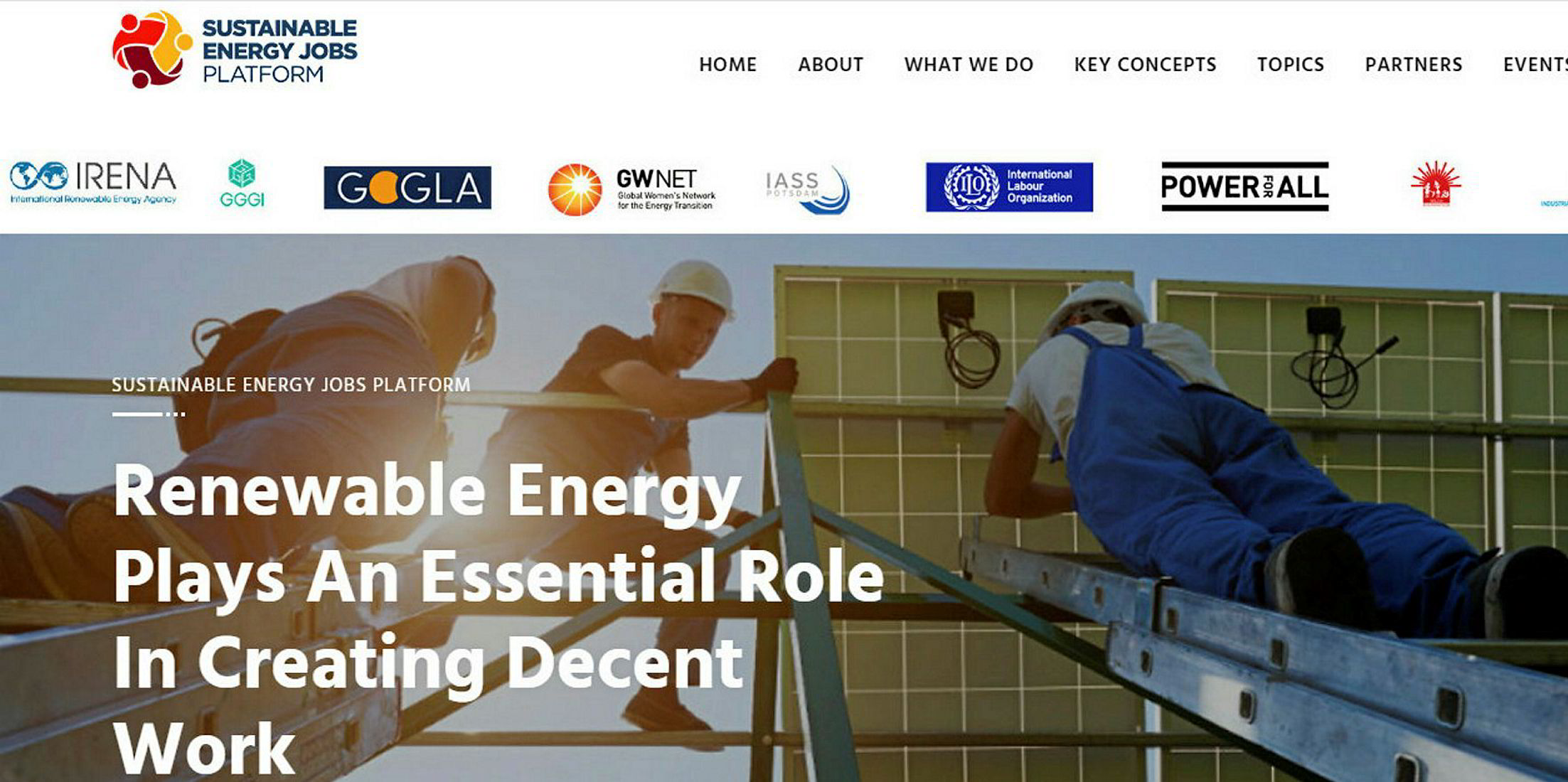The global renewables industry could be providing more than 40 million jobs by 2050, according to a new report from the International Renewable Energy Agency (Irena).
The study, Measuring the socio-economics of transition: Focus on jobs, was presented at the Irena Assembly in Abu Dhabi, at the launch of the new Sustainable Energy Jobs Platform (SEJP). The SEJP is an initiative of multiple international public and private sector organisations (see below) that calls for more ambitious climate action from governments, focusing on the potential of renewables for job creation and economic growth.
The SEJP “recognises the essential role of renewable energy in creating decent work… to achieve a prosperous and just energy transition for all,” according to a launch statement.
“Everybody is talking about a just transition but not many know how to make it happen,” said Irena director-general Francesco La Camera. “We all have to work on this subject to present a clear voice that supports an inclusive transition.”
Renewable energy currently employs 11 million people around the world, according to Irena estimates.
“As the energy transition picks up speed and decentralised technologies permit better energy access and productive use, renewable energy could employ more than 40 million people by 2050, with additional jobs in energy efficiency and grid modernisation,” said the SEJP launch statement. “Furthermore, the shift to electric or hybrid cars will create jobs and demand for new skills as well.
“The energy transition must be a just transition. Adequate investments in economic development and revitalisation, retraining opportunities, and social protection must be provided to workers and communities whose livelihoods rely on fossil-fuel based industries, in order to facilitate their participation in the new energy economy.”
The organisations involved in the SEJP are: Irena, the UN Industrial Development Organization, the Global Green Growth Institute, the off-grid solar industry association Gogla, the International Labour Organization, Power for All, the SELCO Foundation, the Global Women’s Network for the Energy Transition, and the Institute for Advanced Sustainability Studies (IASS Potsdam). The World Bank’s Energy Sector Management Assistance Program is an affiliate of the new initiative.


